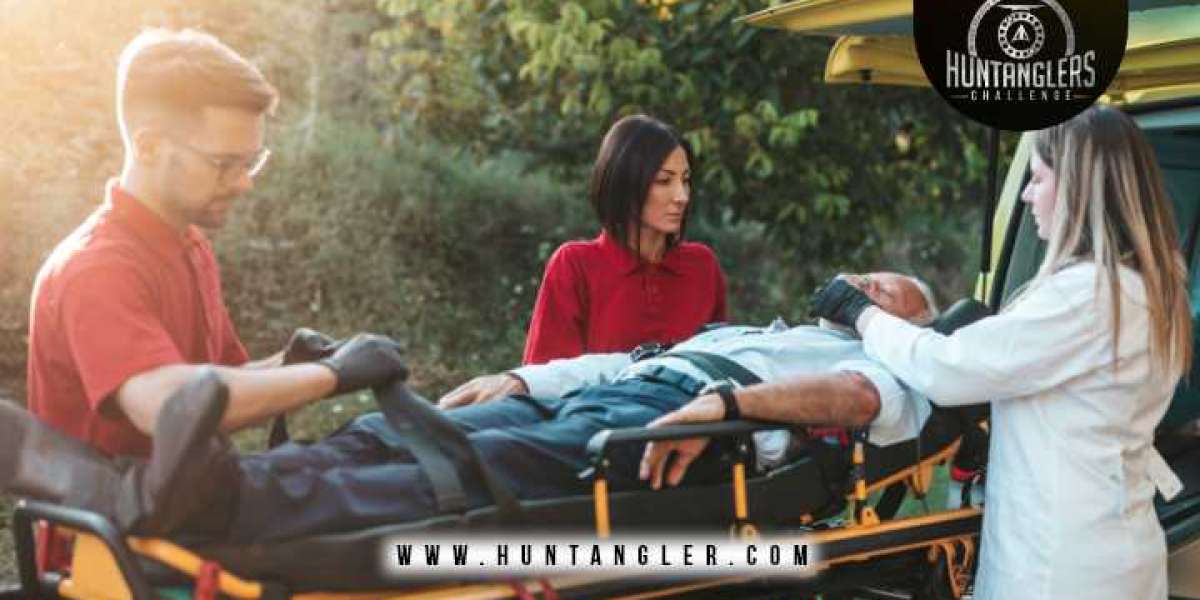Hunters Should Always Take Precautions To Minimize The Chances Of Injuries, But Accidents Can Still Happen.
Hunting is a hazardous activity. Even the most observant hunters can get hurt or sick while they target animals in the field, and it's important to know what to do in case of an emergency.
If you have an accident while hunting, treat it as a medical emergency until you know otherwise. If you suffer a scratch, bite, or wound from an animal, seek medical attention from your doctor or hospital if there is any sign of infection (redness around the injury).
If You Have A Scratch, Bite, Or Wound From An Animal That You Think Might Be Rabid, Wash The Wound Thoroughly With Soap And Water For 10-15 Minutes And Seek Medical Attention Immediately.
If you have a scratch, bite or wound from an animal that you think might be rabid, wash the wound thoroughly with soap and water for 10-15 minutes and seek medical attention immediately.
Avoid Eating Meat From Any Game That Is Obviously Sick Or Injured.
You should avoid eating meat from any game that is obviously sick or injured. If you see an ill or injured animal, prevent it.
Wear An Appropriate Personal Flotation Device (PFD) When Hunting Near, On Water, Or on Boats.
Personal flotation devices (PFDs) are mandatory in some places, but they're worth wearing even if no laws require you to do so. PFDs can be life-saving and should be worn when hunting near or on water or boats. If you're unsure whether it's safe to go without a PFD, err on caution and put one on.
Wear Hearing Protection Rated To A Noise Reduction Rating Of At Least 26 Decibels (Db.).
When it comes to hearing protection, there's not one size fits all. The best way to choose the right ear plugs for you is by knowing what kind of noise reduction rating (NRR) you need and testing out different brands until you find one that works best for your ears.
To properly use earplugs:
- Roll them between two fingers until they're soft and pliable.
- One finger on the side of the head, close to the jawbone, should insert into each ear canal as far as feasible. When placed correctly and slowly massaged into position until comfortable enough to stay in place without feeling like they'll fall out later when doing things like running outdoors during hunting season. Where there may be a lot of loud noises happening all around. It will help keep them in place while relieving pressure off sensitive areas like eardrums or other parts of inner ear canals where damage may occur.
Wear Blaze Orange Clothing To Increase Your Visibility During Hunting Season.
Wear blaze orange clothing to increase your visibility during hunting season. Blaze orange is the bright hue of a hunter's vest, hat, and gloves. Hunters typically wear it in an effort to make themselves more visible to other people who may be hunting or walking through the woods at the same time.
When you go hunting yourself, wear blaze orange apparel as well (especially during deer season). Consider putting it on when walking around your property if there are areas where other animals might be feeding or crossing paths with humans who could mistake them for the game if they don't see them coming!
Suppose A Hunter's Foot Gets stuck In an Animal's Hoof While Field Dressing It, Do Not Try to Remove It. Wait until Medical Personnel Can see the Hunter.
If a hunter's foot gets stuck in an animal's hoof while field dressing it, do not try to remove it. Wait until the hunter can be seen by medical personnel.
Do not pull on or cut off the hoof because you could cause further injury and infection. If you have pliers available, try using them instead of cutting tools like knives or axes (which could damage tissue).
It's Essential To Be Prepared For Any Accident Or Injury While Hunting.
It's essential to be prepared for any accident or injury while hunting. Whether in the woods, on a boat, or even walking through your backyard, having a first aid kit nearby can help save lives.
If you get injured while best hunting and fishing mobile application , you must know what steps to take next. You should:
- Evaluate the extent of your injuries as quickly as possible (ie, how serious they are).
- Call 911 if necessary and wait until medical assistance arrives before moving from your current location or attempting any self-care measures; This includes using any medication in your first aid kit unless otherwise instructed by an EMT!
- If possible, find shelter from weather conditions such as cold winds or rain until help arrives. Or at least bring extra layers of clothing so that if one item gets wet during treatment, another layer underneath will keep us warm/dryer than nothing!
Conclusion
To conclude, it's essential to be prepared with a first aid kit. It should include bandages, antiseptic wipes, gauze, and other items you can use to treat minor injuries. It's also important to know how to treat wounds, apply pressure and stop bleeding, clean and dress cuts, and identify signs of infection. If a hunter does suffer a severe injury, such as a broken bone or an animal bite, they should call for help immediately. It's essential to stay with the injured person and help keep them calm until help arrives. In addition, it's advisable to be aware of the risks associated with hunting and to take precautions to avoid injuries. Wear proper safety gear, such as a heavy jacket, gloves, and a helmet, and be familiar with your surroundings and the terrain. Lastly, never hunt alone; always tell someone where you are leaving and when you expect to return. By following these fundamental safety tips and being prepared with the proper first aid knowledge and equipment, hunters can reduce their risk of injury and be ready for any potential emergencies. This blog post has given you some helpful information about what first aid every hunter should know!


